Posted by Web Editor on May 9, 2024 · Leave a Comment
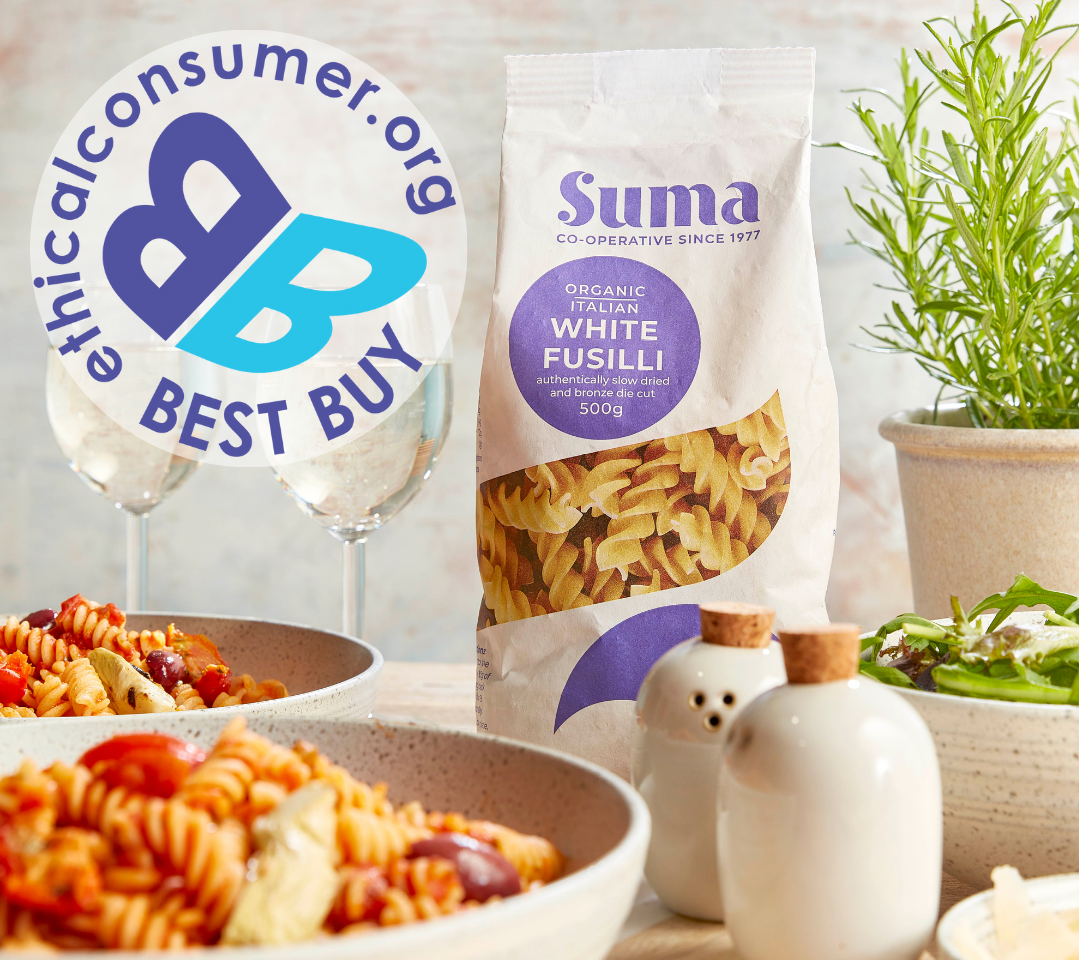
Ethical Consumer has announced that they are expanding their Best Buy Label scheme due to the continued growth of the UK ethical market. The company has launched the expansion with fellow co-operative Suma Wholefood’s new range of Italian organic pasta.
Suma’s new pasta range is the first product to be awarded Ethical Consumer’s prestigious Best Buy Label under the organisation’s newly expanded certification scheme – which will now include products which were previously not covered in their regular product guides.
Products will still be rated according to Ethical Consumer’s unique scoring system, which specifically looks at a company and its product’s environmental and ethical credentials. The certification of Suma’s organic pasta marks a unique triple for Europe’s co-operative movement as Ethical Consumer, Suma and the Italian manufacturer of the pasta are all worker-owned co-operatives.
Stephanie Motzek, Suma’s Commerce Compliance Coordinator, comments: “Here at Suma, we are individual members of our co-operative and also consumers. Working together with Ethical Consumer was insightful. We greatly respect the work they undertake as researchers, enabling the public to make better-informed buying decisions.
“Suma had the honour of contributing to this process review and development; it isn’t just about our products but about the ethical market as a whole and that’s something we’re very pleased to have been able to assist with.”
Nadine Oliver of Ethical Consumer adds: “It’s terrific that not only is Suma a workers’ co-op like ourselves but also that the company which makes the organic pasta is a co-op too. This shows that the co-op movement is right at the cutting edge of today’s ethical market.
“We’re increasingly being approached by companies to certify products and services in sectors that fall outside of our existing shopping guides. By expanding our Best Buy Label scheme we’re now opening up the possibility for us to award the Best Buy Label to a much wider range of products and services.”
Launched over 20 years ago, the Best Buy Label scheme has signed up almost 50 of the UK’s most ethical companies based on the results of Ethical Consumer’s product guides. The recognisable butterfly logo is only awarded to products with top scores; the Ethical Consumer scoring system rates products out of 100, starting with a company’s overall ethics and then takes into consideration a range of issues including supply chain management, animal rights policy, tax conduct and carbon reporting.
Suma currently has 20 Best Buy labels due to their outstanding ethics when it comes to supply chain management and their environmental reporting, scoring highly for all their products.
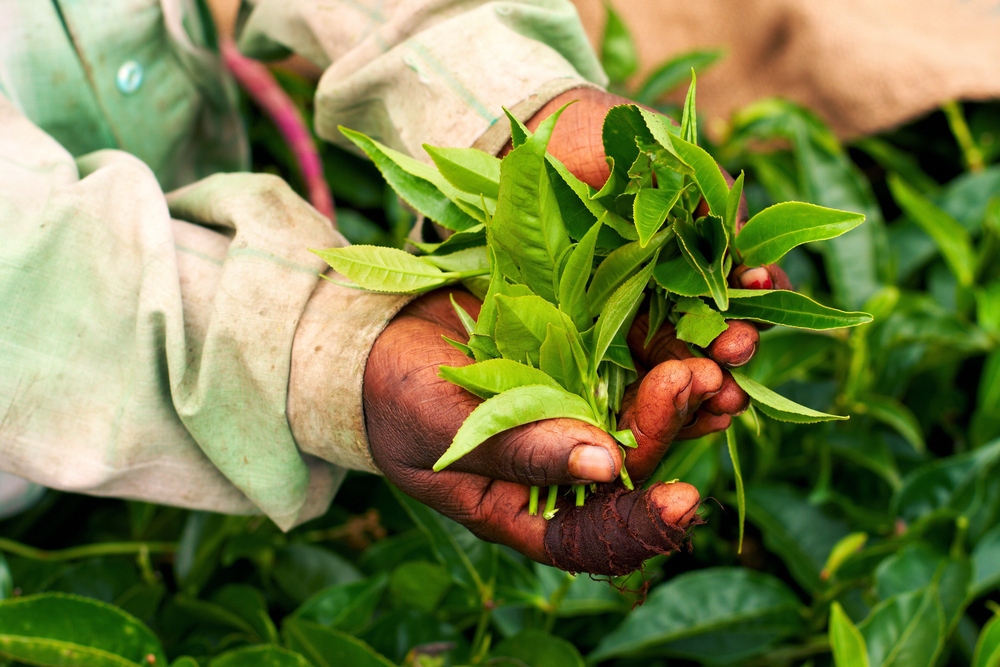
A new campaign to raise awareness of the lack of power and influence in global supply chains that keeps farmers and workers in low-income countries poor has been announced.
The Make Your Mark campaign is running across 10 markets, designed to highlight the power imbalance that leaves millions of farmers and workers behind staple food products underpaid and exploited despite playing a critical role in global food security. This is exacerbated by the climate crisis. Fairtrade is asking supporters to sign up to a fairer future by committing to three pledges by June 11. The three ways to Make Your Mark with Fairtrade include: Choose Fairtrade, Spread the Word, and Vote Fair.
Fairtrade explains that producers are at the end of long supply chains, disconnected from consumers, and they lack negotiating power to make their voices heard when business deals are being made. To address these issues, the farmers need a proper seat at the table when laws and regulations are being developed to make sure their concerns are listened to, and their interests protected. Without fair pay and a proper say and long-term trading relationships, millions of farmers and workers simply won’t survive in the coming decades, Fairtrade warns.
The campaign features a consumer pledge and a series of short films and farmers’ stories that unveil the bitter truth behind some of our favourite foods. Specially-commissioned films featuring hero Fairtrade farmers show consumers how their choices – buying Fairtrade bananas, coffee or cotton – can change the lives and futures of farmers, workers and their communities. They are produced in collaboration with Fairtrade’s producer networks CLAC, NAPP and Fairtrade Africa and tell the stories of three ‘hero’ farmers.
Stefan Donnelly, The Fairtrade Foundation’s Senior Campaigns Manager, explained: “Farmers are telling us climate change, unfair trade and lack of representation in decision-making forums is making life impossible: poverty forces families to choose between essentials like medical care, children’s education and decent food. Denied fair pay and a fair say, millions of farmers will walk away from farming – worsening further the global crisis of food insecurity. We can demand change. Choosing Fairtrade products shows that we respect the people behind our food.
“The more people buy Fairtrade goods, be it coffee, chocolate, bananas, wine, cotton, or any of the other thousands of products available in the UK where you see the distinctive mark, the more power it gives the farmers.”
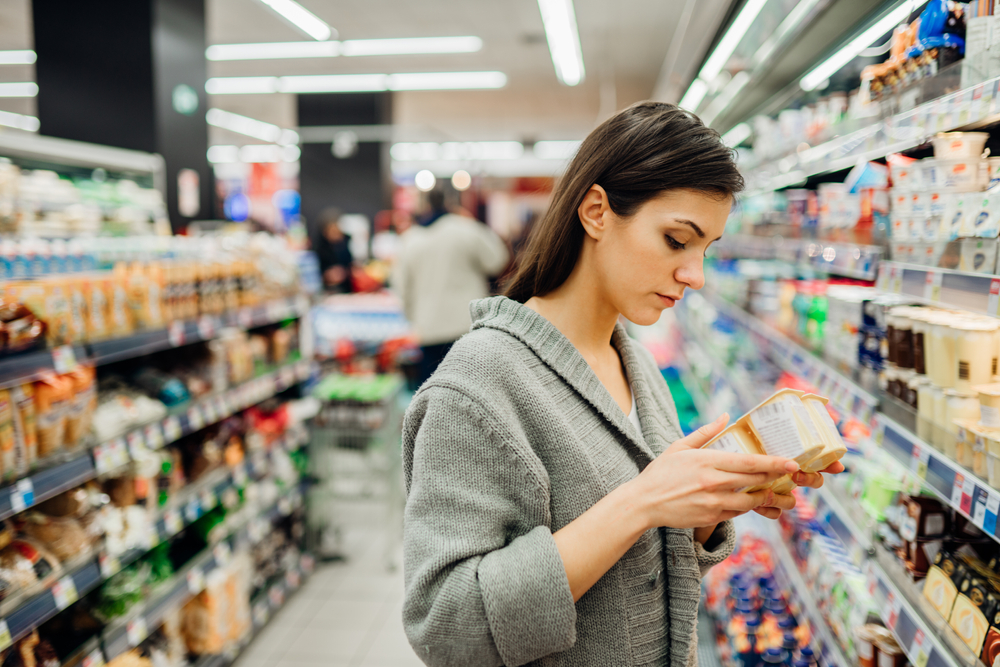
New research has revealed that consumer expectations for snack products go beyond sustainably sourced ingredients.
Data obtained by UK wholesaler, Epicurium, has suggested that modern consumers have come to expect manufacturers of sustainable snacks to enact changes in addition to sourcing ingredients sustainably.
In the first of its kind undertaken by Epicurium, the recent study found that increasingly, consumer expectations of sustainable snack manufacturers goes beyond the sourcing of ingredients and instead now also encompasses full ingredient transparency, a requirement for companies to have a low carbon footprint, and an increased expectation of the use of ethically conscious recyclable packaging.
Findings from the survey, which was carried out over a six-month period across a variety of brands, showed that of those consumers surveyed, local and ethically sourced ingredients were also viewed as important when making their purchasing decisions.
The data from the project is reinforced by industry insights collected by Epicurium, which details an increase in brands that are not only transparent about their processes, but also leverage their position in the market to make effective ethical change in supply chain and sourcing. An independent trend report commissioned by the company also suggests that in addition to the scrutiny of the manufacturing processes, companies are sourcing alternative energy, reducing CO2 emissions and implementing strategies to develop regenerative businesses.
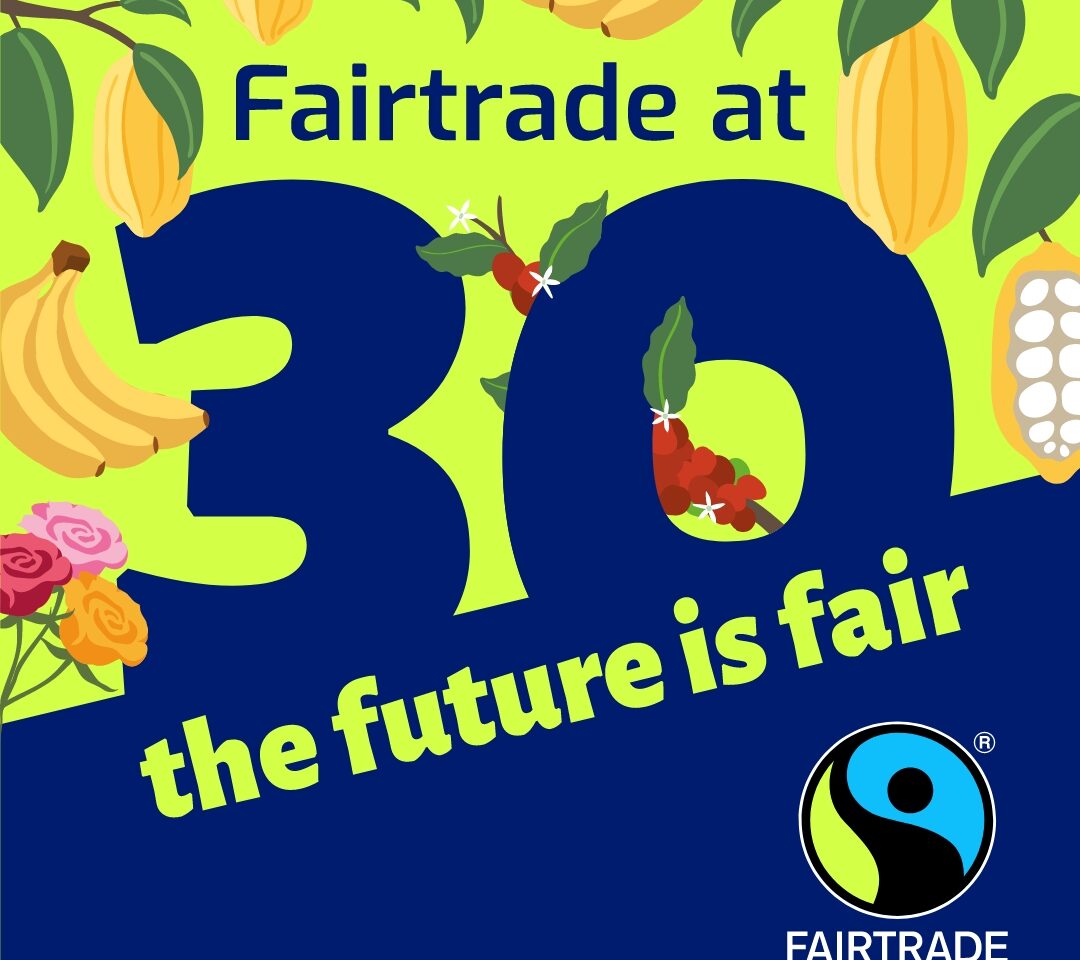
With 2024 marking three decades of the Fairtrade Mark, the organisation behind it in the UK is planning to celebrate the achievements of the movement.
There are now more than 6,000 Fairtrade products in the UK, and the number is growing all the time. Globally, millions of farmers and workers in 70 countries are part of 1,930 Fairtrade certified producer organisations, benefitting from stable prices, community facilities such as education, healthcare and clean water which Fairtrade has funded, access to training and a platform for their voices to be heard.
And now, with 2024 marking the 30th anniversary of the Fairtrade Mark, the Fairtrade Foundation is planning a range of initiatives, including moving Fairtrade Fortnight from its usual February date to September, when the anniversary takes place.
Fairtrade Foundation CEO, Mike Gidney, commented: “We are incredibly excited to be able to mark this very important milestone. Fairtrade is all about building a fairer future for people in low-income countries who grow and make the things we rely on every day: our food, our clothes. Thirty years on, we estimate that 10m people, including farmers, workers and their families across Africa, Latin America, and Asia benefit from sales of their products on Fairtrade terms.
“That’s an amazing achievement and is thanks to the increasing dedication of companies in changing the way they trade, driven by huge, unstinting support from the British public. Of course, there is still so much to be done. Even while we celebrate the achievements of the Fairtrade movement, and the inspirational commitments of campaigners, communities and companies alike, we are as ambitious as we were on day one to bring the benefits of Fairtrade to more people.
“There will be many opportunities to celebrate this year, many stories of the inspiring people who have worked hard to build the Fairtrade movement over the years, bringing lasting change not only to farmers, but also to companies in the UK and to public attitudes too. We know from research that consumers want to be part of the change. That’s a wonderful mandate for companies to join in, so that together we really can make trade fair for everyone.”
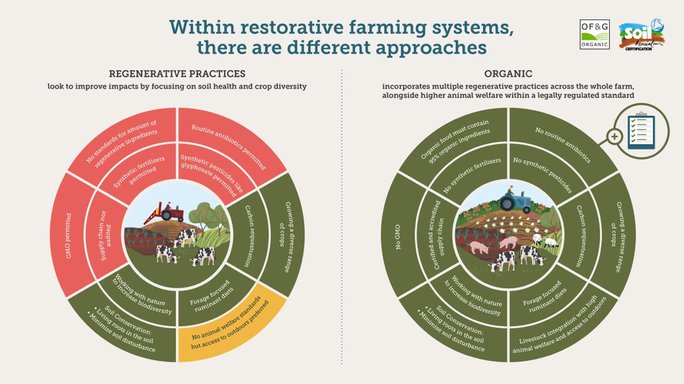
Two of the UK’s biggest organic certifiers have created a new set of infographics to raise awareness of the differences between organic and regenerative farming.
Organic Farmers & Growers (OF&G) and the Soil Association are working together to shine a light on the positive outcomes that organic delivers. This latest collaboration has led to the development of a series of infographics that position organic’s restorative approach within the context of other farming systems.
The graphics have been produced in response to increasingly confusing and conflated messaging currently being promoted in the media and wider industry. Their aim is to provide greater clarity by identifying the differences and commonalities between alternative farming practices.
OF&G Chief Executive, Roger Kerr, believes the work provides a useful reference and framework for anyone working in the sector.
“We continue to take a pragmatic approach to how best to support our organic licensees and engage with other interested parties,” he advised. “Our intention was to create some reference materials that demonstrate how organic tackles the fundamental challenges that our food systems and environment face.
“For over 70 years, the organic movement has been the conscientious objector to today’s degenerative and exploitative farming practises. It is frustrating that it has come to this. Continuing to feed people in the face of climate and biodiversity collapse, high levels of pollution and deforestation is a complex problem, and complex problems require versatile and multifaceted solutions – like organic. These three infographics show this solution simply and clearly.”


 Organic & Natural Business magazine
Organic & Natural Business magazine




